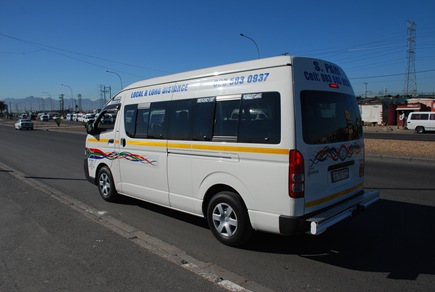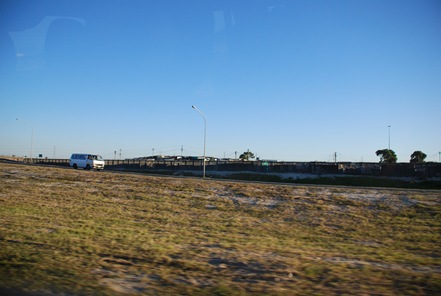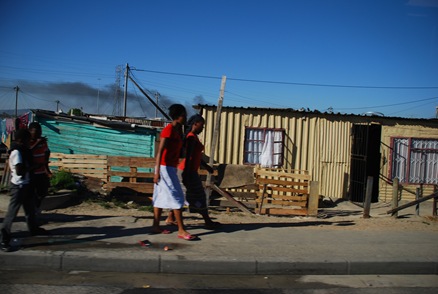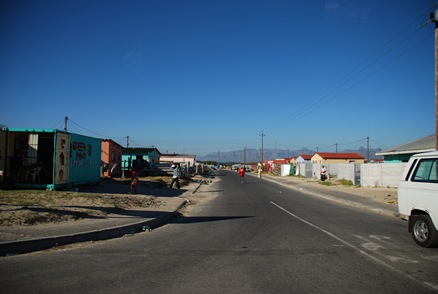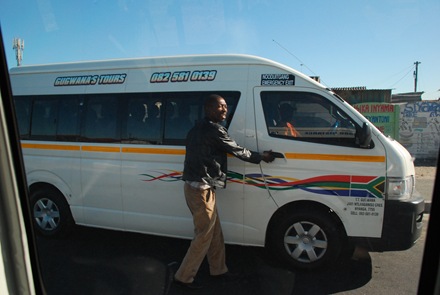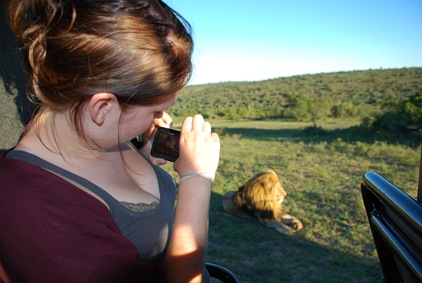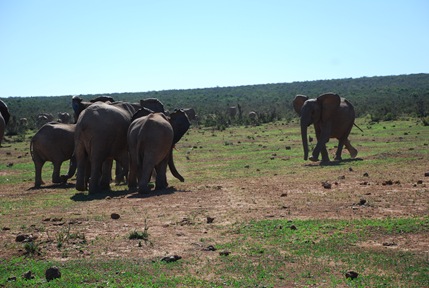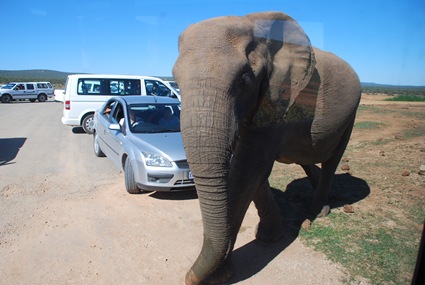« April 2010 | Main | June 2010 »
May 31, 2010
Geeks vs. nerds

XKCD thinks the distinction between geek and nerd is that a geek is someone unusually into something and nerds are (often awkward) math, science and computer geeks. I guess my own definition is slightly different: Geeks are unusually into things, but identifying as a geek without indicating what this interest is, generally means you understand everything on XKCD. A nerd is kind of like an intellectual or academic geek, whose interests, although not necessarily as obsessive as a geek's, are the kind of interests that would make you "good at school": reading, writing, math, science or really any kind of academic field. I generally feel more nerdy than geeky, because I don't tend to obsess over specifics. But I do realize that having a gut-feeling-based way of distinguishing the two categories probably means I belong in both.
And socially awkward people are dorks. Or just socially awkward people.
Posted by Julie at 2:11 PM | TrackBack
May 28, 2010
No comments for Stephen Fry
Stephen Fry explains why he recently closed comments on his blog:
"I don’t know about you, but my eyes are already trained only to read the top half of a web page these days. Rather as a Victorian would not look below the waist, I do not let my eyes have even a second’s contact with the revolting Have Your Say or Comments section of a BBC site, a YouTube page or any blog or tech forum. The lower half of web pages is very like the lower half of the body — full of all kinds of noxious evil smelling poison. I suppose it has to be expelled somewhere, but you will forgive me for not wanting to be close by when it happens. It is a pity, a real pity, that the furious few pollute the atmosphere and obstruct the pipelines that might otherwise allow the reciprocal possibilities of the world of User Generated Content that Web 2.0 promised all those years ago. Lord knows I don’t want the Comment pages on my site to be filled with nothing but sycophantic agreement and loving worship. The truth is I would like them to be open, honest and free. There are thousands of people with valid and interesting points of disagreement with me on any number of subjects, with objections to Apple, their corporate style, their approach to hardware, firmware and software and their whole philosophy , but they are drowned out by the fundies and the freaks. One hurtful, mean-spirited, vicious or intemperate comment ruins everything. Absolutely everything. You cannot say to someone about to take a bath, ‘it’s only a small turd in there, the rest of the water is crystal clear’ — one turd spoils the whole bath. So I would rather have no comment at all. Call me weak, call me pusillanimous, call me craven, call me anything, only don’t do it here."
Anything Fry writes is an interesting read, and this blog post, about Apple, was no exception. I laughed at the paragraph and wanted to quote it. Copy. Paste.
Then I got a little worried.
Twitterer and self-proclaimed geek Fry is claiming that one stupid blog comment is enough to ruin "absolutely everything". I think internet-based debate and commentary gets enough of a bad rep from technophobes and those people who don't read blogs, without ammunition from Fry. He is blogging and tweeting for 1.5 million followers. He knows that Web 2.0 is far from ruined, even if he personally can't be bothered to moderate right now.
- For more of my thoughts on media and the internet, go to IT and the Internet according to Julie
Posted by Julie at 10:36 AM | Comments (1) | TrackBack
May 19, 2010
Fashion lessons from childhood fiction
- Don’t be afraid of super high shoes. (Cruella de Vil)
- It’s not enough just to be pretty. (Jane Eyre)
- Well-tailored jackets and tiny Victorian-style boots go with everything. (Mary Poppins)
- There’s no shame in being different, bright jackets are awesome and you really need to stop judging people entirely by their clothing, even though judging people entirely by their clothing leads to completely accurate assumptions. Actually, every single item in your closet would look better surrounded by Parisian scenery... and judging people by their clothing is more accepted in Paris. (Madeline)
Via Jennifer Wright's series Fashion lessons from childhood fiction
Oh, and by the way, some related posts:
- Playing dress-up (how wanting to be a witch influenced my style)
- Dressed for anything (why Parisians judge)
- Style according to Julie (All my posts on clothes and fashion on one page)
(And yes, this was written as procrastination/break in the middle of writing a six page feature article on South African education. Yay, feature writing exams again!)
Posted by Julie at 9:55 PM | Comments (2) | TrackBack
May 6, 2010
South Africa through taxi windows
"So if you're ever feeling down, grab your purse and take a taxi to the darker side of town." - The Wombats
This is a Cape Town minibus taxi. During our first week here, my six Norwegian journalist friends and I referred to this cross between a bus service and a shared taxi service as "the crazy-taxis". If one of us separated from the group, we worried that our lone Norwegian friend would sacrifice their own safety to save 100 rand and hop on a crowded minibus rather than calling a cab. We envisioned speeding and theft, or worse.
On Monday I celebrated World Press Freedom Day by interviewing a teacher at a high school in the township of Khayelitsha - definitely violating guidelines from the South African Department of Education and possibly risking my own safety in the process. I travelled by minibus taxi by myself, and felt safe the whole way. Some time between that first nervous week and yesterday, the white vans making their way between cities and townships have become normal to me. They have also turned into a symbol of the physical and social distance between people in this country.
Yesterday's journey started in Stellenbosch. This ridiculously cozy university town seems to consist solely of oak trees and student-friendly café-bars. Populated mainly by squirrels and undergrads, it feels strangely like a sleepy New England town. Unlike towns in New England, but just like most other South African towns, Stellenbosch has a township, a residential area originally designed specifically for "non-whites" during the apartheid era. Khayamandi seems to creep up on Stellenbosch from through a hole in the surrounding wineries' vines. It's described in Wikipedia as a "suburb". But it's not a leafy, wealthy, calm suburb. It's a township, "originally built to house exclusively black migrant male labourers employed on the farms in the Stellenbosch area".
My hosts for the week are a group of five European students at the Stellenbosch university. They live in a friendly two-story house, complete with braai, swimming pool and a heavy locked gate, in the Stellenbosch area called Die Boord. Being Norwegian, my friend Tonje and I think nothing of walking 30 minutes to get to the town center's selection of coffee shops and restaurants, where the croissants amandes are just like in France and the hamburgers are just like in the US.
On the way, we are stopped by a woman who says: "I just want to warn you girls. This road is not safe. The guys walk here to get to the train station and the taxi rank. We had a mugging here just this morning."
The woman is white, and "the guys" are black of course. Her statement suggests that for a black guy, mugging a white girl is a routine part of the morning commute. We want to dismiss her as yet another paranoid white South African, or even just a non-Norwegian non-pedestrian, the kind of person who drives to her own mailbox. But she has a concrete example to support her paranoia. We walk anyway. We don't have a car, and Stellenbosch has no metre-based private cabs and no local bus service.
Either because of perceived distance or perceived danger, the white people of Stellenbosch seem to only travel by car. If I ask for directions on foot, they respond with the South African expression of inconvenience and exasperation. "Ach!", they say, "It's so far!" regardless of the actual distance. For longer distances, I have to specify that I don't have my own car - I am a young, poor student staying here for just a few weeks - and people say: "Ach, how will you get here then?"
It's a good question. If I believe the most paranoid of safety warnings, walking or taking the trains is asking to be mugged. People tell me that if I insist on moving around the country without bullet-proof windows, I should at least leave my camera in the hotel safe. This is obviously advice a journalist must ignore. Some of the people I've asked for directions just tell me to avoid townships all together.
Other people give me the opposite advice. I know people who have lived here for years and never had any first-hand experience of crime. Tonje walks alone and takes trains. Many of the people I interview - black and white, in townships and suburbs - tell me to take a minibus taxi to meet them, and don't add any safety warnings to their directions. "You're safer in townships than I am," one young man from Khayelitsha told me, "If you get mugged, the police care."
So one day I took a minibus taxi by myself. I needed to get from central Cape Town to the Site C taxi rank in Khayelitsha to meet the organization Equal Education. The man who gave me directions told me I would be met at the taxi rank, and that although I knew the way, walking alone to the EE headquarters around the corner was out of the question. I don't know if he was seriously worried that I would get mugged, or if he just wanted to make sure it didn't happen on his watch.
I walked through Cape Town central station - about as nice a place as its Oslo counterpart, which isn't saying much. I felt apprehensive, but relieved to not be moving in a group of seven Norwegian students. Knowing that I would be spending 12 rand and 50 cents to get to my destination (instead of 350 rand, the fare quoted to me by the cab drivers I had called the day before), was also a comforting thought. As I scanned the signs at the taxi rank, searching for "Site C", a young man whistled at me and stage-whispered "Nice" in my direction. My guard was up, and I think I flinched. But then I remembered what it was like to travel by metro in Paris. In that supposedly safe city, one man followed me on a journey that involved changing metro trains twice, keeping up a running commentary on my every movement in whispered French. Men on the metro would sit down next to me and inch closer and closer until I stood up and moved to the other side of the train. On street corners, it seemed perfectly normal to hear guys calling out to girls for attention, yelling lines that could be categorized somewhere between flirtation and outright harassment. But I never felt seriously scared in Paris; I was always surrounded by normal people in addition to the metro-harassers.
And here in South Africa, I am always surrounded by normal people too. The people in taxis are normal. They listen to mp3-players, call friends and read newspapers as they commute. They pass their payment for this commute from the back of the van to the driver in front, helping each other get correct change back. Some of them sleep, some of them small-talk. In this carpool system crossing the Cape Flats, I'm the weird one.
Khayelitsha is between Cape Town and Stellenbosch, so I assumed that having taken taxis from Cape Town, I would be able to take taxis from Stellenbosch. Wrong. Officially, Stellenbosch doesn't have a mini-bus taxi service at all. If my sources are correct, the taxi drivers here drive without a taxi registration, and the "taxi rank" is just a parking lot. Officially, these drivers are just giving a few friends and neighbors a ride in their vans. The carpooling system seems to be functioning much like bus service in rural Norway: locals just know where and when the taxis go, and SA-noobs like myself are helpless. Despite my experience with Cape Town taxis, figuring out how to take one from Stellenbosch prompted much use of "ach".
So on Monday, I called a friend of Tonje's, and he proved the general friendliness of South Africans by meeting me, walking me to a traffic circle, waiting for an hour and yelling "KHAYELITSHA?" at a taxi with the correct license plate (starts with CA means it's likely to go back and forth from Khayelitsha; starts with CL means it's likely to stay in the Stellenbosch area).
"Get in, my friend!" yelled the taxi driver, and I was on my way. Although I could barely understand my driver's English, he seemed friendly enough. I find it hard to believe that he may be one of the striking taxi drivers who threw stones at cars and buses just a month ago. I met a girl here who told me her hair was short because she had to have stitches in her head after an angry taxi-driver threw a brick through a bus window. The drivers seem to have earned a bad reputation, but their service is needed in a country where public transport is limited.
"So, do you know Khayelitsha well?" the young man sitting next to me on the way back to Stellenbosch wanted to know.
I told him that I had been to both the Harare and Site C areas, but: "I would probably get lost if I just took a walk here. And then I would so obviously be a tourist, as if I were carrying a big sign saying 'I'm lost and stupid; please rob me.'" The entire bus laughed at this joke. I wondered if it was funny because it was true, or if it was funny because it reflected the stereotypical view tourists have of Khayelitsha.
The first time I met Equal Education, we crammed too many people into a tiny little private car to drive to an event, rather than get a taxi. I was perched on a stranger's lap, my head against the car's ceiling, driving through Site C, when our driver said: "Ok, guys, if the police stop us because we have too many people in here, we'll tell them you were a stupid tourist, walking alone with your big camera around your neck, and we had to rescue you."
I wouldn't be surprised if people from Khayelitsha did just that. Everyone I've met has been helpful: giving me directions, walking with me part of the way, waiting with me so I wouldn't have to stand around waiting for a taxi alone, translating information from Xhosa to English. One woman met another Norwegian and me in Cape Town, walked with us to the station, took a taxi with us into Khayelitsha, walked with us to three different locations, showed us her own house and found us a taxi to take back to the city. In what was perhaps an excessive show of friendliness, one of my helpers suggested we get married.
But even at its best, travelling here without a car is inconvenient. I would get one if I were staying, but I am lucky: I can afford one. For those who can't, the last taxis leave central Cape Town around 9:30 pm, according to a woman who helped me navigate Cape Town central station two weeks ago. That's so early that she can't go to the theater in the city without spending the night there. In the morning, a commute into town can start at 5 to avoid traffic. Our hospital guide got up at 4 to meet us at 7:30.
Some Khayelitsha parents send their children to schools in richer parts of the Cape Town area, spending thousands of rand a year on tuition and hundreds of rand a month on taxi fare. I spoke to a fifteen-year-old girl - the same age as my sister - who gets up at 4 AM to take a taxi to a school in the suburb Claremont. She worries that her cell phone will be stolen on the way home every day.
The layout of central city and distant township was designed to keep people apart, and it still does. Although the journey can be as short as 20 minutes, going from Stellenbosch to Khayelitsha to have dinner or a beer just doesn't seem like an option. I don't know if it ever will be, or if being able to do so will matter.
Equal Education spends a large part of their budget on taxis, transporting school children from their schools to youth groups and other events.When he drove me home after such an event, founding member Joey Hasson explained the South African school system and his organization's transport worries. We parked next to my hostel in the wealthy Tamboerskloof suburb. He said: "If we want to get to a time when black and white doesn't matter, we need a hell of a lot of taxis."
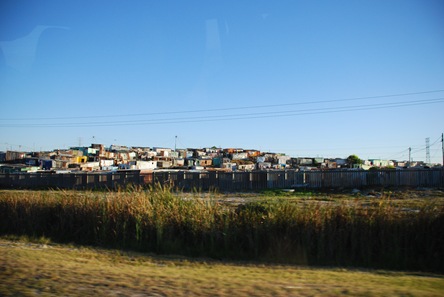
All photos taken by me, through the windows of minibus taxis.
Posted by Julie at 7:43 PM | Comments (1) | TrackBack
May 4, 2010
You’re a kitty!
Driving from Addo Elephant Park to Schotia Nature Reserve, my friend Tonje and I discussed the way people behave around small children. We could not understand how babies transform the people we know. Especially girls who are a few years older than us, dissolve before our very eyes into squeaking, cooing creatures unable to maintain a normal conversation, whenever a small child walks by. We decided we were completely above this nonsense. Then we fantasized about getting PHDs.
However, we had forgotten to include the XKCD law of cat proximity in our calculations:
And then we met a really big kitty.
And I am sorry to admit this, but we squeaked and cooed.
. but look at him. He's a kitty!
I'm sorry. I have lost the ability to write coherent sentences now that these pictures are in front of me. This is even worse than the elephants.
Posted by Julie at 7:46 PM | Comments (1) | TrackBack
Elephants (not elgephants)
I am working on a blog post which actually describes some of my South Africa experience, rather than just posting photos and quick comments. The promised descriptive blog post has turned epic, so while I edit and proof-read, here are photos from a mandatory part of travelling in Africa: animals. First the elephants, which I specifically went to Addo Elephant Park to see.
and then the other animals (link coming soon)
Posted by Julie at 7:09 PM | TrackBack
May 2, 2010
Rearranging Europe

The Economist rearranged Europe, because "people who find their neighbours tiresome can move to another neighbourhood, whereas countries can't. But suppose they could. Rejigging the map of Europe would make life more logical and friendlier."
I am especially glad that they made room for Vulgaria.
Posted by Julie at 2:49 PM | Comments (2) | TrackBack
